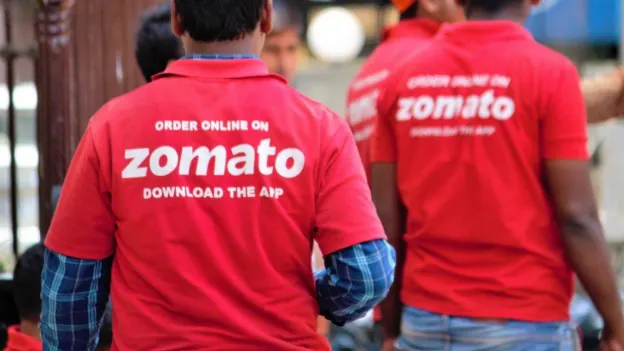The news from Bangalore, 2025 revolving around the death of Mr. Biju John, a National Sales Manager at AU Small Finance Bank, sent shockwaves through India’s corporate circles. Biju was a talented and people-centric leader. Yet after a conference call where he was reportedly humiliated and cornered by his superiors, Biju took an irreversible step, when he died by suicide. His colleagues and the All India Microfinance Employees Trade Union (AIMETU) later revealed a toxic workplace behind the scenes: public dressing-downs in meetings, autocratic decisions from bosses, extreme sales targets without support, HR turning a blind eye – a perfect storm of humiliation and pressure that broke even a strong professional like Biju John.
Tragically, Biju’s case is not an isolated incident; across India, in banks, NBFCs, tech startups, and conglomerates, employees are suffering under a silent epidemic of corporate toxicity.
Many good employees are left with agonizing choices – suffer in silence, resign quietly, or take extreme steps. Indian offices are “slowly turning into graveyards for good people.” Unless there is strict intervention, these tragedies will continue. In this article, we shine a light on some high-profile examples of toxic work culture across corporate India, from ed-tech unicorns to legacy banks, and explore the toll this culture is taking on employees’ lives and mental health.
Byju’s: An Education in Exploitation
Once the poster child of India’s startup success, Byju’s has been in the spotlight for its aggressive sales and work practices, and not in a good way. Employees of the ed-tech giant have spoken out about what they call a “toxic work culture” that feels more like a dystopian sweatshop than a modern workplace.
In mid-2023, a tearful video of a former Byju’s staffer, Akanksha Khemka, went viral, revealing how she was forced to resign and threatened with withheld salary if she didn’t leave immediately. Khemka, the sole breadwinner in her family, publicly pleaded: “Please help me… If there is no way out after this post then I have to end my life… Byju’s is doing fraud from all sides including employees and customers”. This desperate cry for help underscored how financial coercion and mental harassment had pushed her to the brink.
Byju’s employees describe being treated “like robots”; a phrase that would be comical if it weren’t so disturbing. Another employee, Arpit Singh, recounted working 24×7 only to be summarily asked to resign without notice. The company’s much-lauded growth was fueled by salespeople hustling day and night, often using high-pressure tactics to sell costly courses to families.
Work-life balance? Nonexistent; employees routinely spoke of 12-15 hour days and working weekends. Job security? Precarious; mass layoffs were handled callously, with some fired employees not even receiving Byju’s CEO’s apology letter (as it was sent only to those still employed). The result: a pervasive climate of fear and anxiety, where at any point an employee could be “performance managed” out of a job.
Even Byju Raveendran, the founder and CEO, was forced to admit the company had an image problem. In 2025 he publicly acknowledged the “toxic culture” claims – but in the same breath downplayed them as “just a small percentage” blown out of proportion by social media. According to him, only 1% of salespeople behaved aggressively, and issues were “corrected… with guardrails”. This nothing-to-see-here defense rings hollow when stacked against the mounting evidence: multiple videos and posts of Byju’s employees breaking down or speaking up about bullying managers, unrealistic targets, and emotional breakdowns. For an education company, Byju’s seems to have schooled an entire generation of workers in burnout and disillusionment.
The irony is stark – an ed-tech firm valued in billions, built on the promise of nurturing young minds, is simultaneously breaking the spirits of its own employees. As one employee’s viral plea suggested, the situation was so dire that government intervention was sought to “help me and other employees escape this toxic work culture”. When employees start begging the Ministry of Labour & Employment and even the PM for rescue, you know something is horribly wrong!
The Private Bank Titan, HDFC Bank- Where High Targets Turn Death Beds!
In late 2024, an alarming series of events unfolded at HDFC Bank, one of India’s largest private banks. In just a three-month span, three employees in their 30s and 40s died – two collapsing at work, one suffering a fatal heart attack – and insiders allege the common thread was extreme workplace stress.
The most publicized was the death of Safi Khan, a mid-level HDFC manager who died of sudden cardiac arrest on November 19, 2024. His wife, Nida Mushir, took to LinkedIn with an emotional post that went viral, calling his death “not a normal death… it is the result of toxic work culture”. According to her, Safi had endured relentless pressure and harassment – hounded over taking leave, belittled by “super seniors,” and pushed beyond human limits. He had even resigned months prior due to the hostile environment, but was coaxed back only to face the same abuse.
Nida’s heartbreaking questions struck a chord nationwide: “Why are employees treated as if their lives are expendable? How many more lives will it take before HDFC Bank changes its toxic work culture?”. She revealed that at least two other colleagues had recently died under similar circumstances – one woman, Sadaf Fatima, who collapsed at work in Lucknow, and a man, Shivam Mehrotra, who suffered a fatal collapse during a conference call in Mumbai.
All were relatively young (35-45) and ostensibly healthy before work stress literally killed them. “This cannot be dismissed as coincidence… Three consecutive deaths in just three months while employees were fulfilling their job obligations”, Nida wrote, calling it a dire reflection of the pressures that workers are subjected to.
The bank’s response? Official silence. (One might note that silence is a recurring theme – corporate India’s go-to strategy is often to say nothing until a public outcry forces their hand.) HDFC’s leadership, at least publicly, did not immediately acknowledge any issues. But internally and across social media, the story spread like wildfire.
It echoed the earlier tragedy at EY (Ernst & Young) in 2023, when 26-year-old auditor Anna Sebastian Perayil died and her mother blamed “extreme work pressure” for taking a toll on her daughter. It also harkened to the case of a manager at another bank who left a note begging management to “take a sympathetic view” toward staff just before he ended his life. In all these cases, the pattern is the same: unbearable targets, intimidation from higher-ups, and a toxic environment contribute to mental and physical breakdowns.
HDFC Bank, like many large banks, is known for aggressive sales targets – whether it’s loans, credit cards, or insurance policies. Employees often speak of a “pressure-cooker” culture where the day’s slogan might as well be “Sales at any cost.” When targets aren’t met, the escalation can be swift and brutal: public scolding on morning calls, threats of transfer or termination, and sometimes Kafkaesque policies like docking pay for unmet quotas. One widow’s account even mentioned how her husband’s team was “pressured to sell insurance to customers while lacking insurance for employees themselves” – a bitter irony.
There are countless unsung Safis in the banking sector – people who suffer quietly until they break. In fact, by one estimate, nearly 500 bank employees in India died by suicide over the past decade, many leaving behind damning letters blaming unbearable workplace stress and senior harassment. It’s telling that in Safi’s case, justice and accountability are being pursued not by the bank’s HR, but by his grieving wife through a LinkedIn open letter. How many more red flags do we need before our financial institutions admit that there is a human cost to their high-profit, high-pressure model?
Zepto: 10-Minute Groceries, 24/7 Grind
The quick-commerce startup Zepto promises to deliver your groceries in 10 minutes – an impressive feat that ironically seems to require working its employees to the bone. In 2025, Zepto found itself battling allegations of a “straight-up abusive” work culture after a former contractual employee’s testimonial went viral. The B.Tech graduate, desperate for a job, accepted a contract role at Zepto only to find that he’d stepped into what he called “psychological warfare”.
His Reddit post (cheekily composed “with the help of ChatGPT,” he admitted) described grueling conditions: 6-day weeks (sometimes 7), 9 AM to 8 PM or later, often with no lunch breaks or holidays. If he dared to pause for a breather, a manager would immediately call to ask why he wasn’t “committed” – because apparently, at Zepto, basic human needs are a sign of insufficient commitment.
What truly sends chills are the accounts of intimidation. This worker described a manager who would make menacing hand gestures “as if he was going to slap or punch me”, stopping just short of physical assault. “He never hit me, but the intimidation was constant… I used to freeze at my desk, scared, anxious, and helpless. That’s not a job. That’s psychological warfare,” the employee wrote, recounting how he worked in constant fear of the next outburst.
Because he was a contract worker, he had zero access to HR or any grievance redressal – effectively no safety net at all. On his last day, running a high fever, he informed HR he was unwell; their response was to show “zero empathy” and demand he return his company laptop within an hour. The picture painted is one of a company that sees its people as disposable cogs – if you break, you’re out, and the machine rolls on.
Zepto’s management rushed into damage control. The 22-year-old CEO, Aadit Palicha, had already been under scrutiny after an earlier remark where he quipped, “I have nothing against work-life balance. In fact, I recommend it to all our competitors.”. (That’s right – work-life balance is great… as long as it’s other companies practicing it. In Zepto’s own house, not so much!) Palicha later claimed he was just quoting another founder’s joke, but the message was loud and clear – long hours and all-in dedication are glorified at the top.
In the wake of the viral post, Zepto clarified that the incident involved a third-party contractor, not a direct employee. Perhaps true, but that feels like a technicality when a young worker describes 12-hour shifts with no breaks and verbal abuse as daily routine. Contract worker or full-timer, no one should have to bring an armory to a grocery startup just to survive the workday.
Zepto’s story underscores a broader startup mindset that is troubling: a “growth-at-any-cost” culture where youthful CEOs (lionized for their hustle) sometimes create hellish workplaces under the banner of “passion” and “mission.” When leadership publicly jokes about 84-hour workweeks and turning Sundays into workdays, it normalizes a culture of burnout.
Employees – especially fresh graduates – may feel they have to accept these conditions in exchange for experience or a fancy company name on their CV. But as the Zepto case shows, the cost can be one’s mental health and dignity. It takes a lot for an employee, especially in India’s tight job market, to risk their career by speaking out. The fact this individual did, and that it resonated widely, shows how common and corrosive these toxic startup cultures have become.
L&T’s 90-Hour Workweek “Vision”
What happens when the head of a $21-billion conglomerate proudly wishes everyone worked 90 hours a week? India found out in January 2025, when S.N. Subrahmanyan, Chairman of Larsen & Toubro (L&T), sparked outrage with his comments during an internal meeting. A leaked video showed Subrahmanyan lamenting that L&T has a six-day week: “I regret I am not able to make you work on Sundays, to be honest. If I can make you work on Sundays, I will be more happy, because I work on Sundays also,” he said.
He went on to compare Indians unfavorably to the Chinese, suggesting that Indians should clock 90 hours a week – nearly double the traditional 48-hour norm – if we want to become a developed nation. And as a final flourish, Subrahmanyan mused, “What do you do sitting at home? How long can you stare at your wife? … Get to the office and start working.”. (Because clearly, in this vision, employees’ spouses are just idle furniture gathering dust while their partners foolishly take a day off.)
The backlash was swift and fiery. Harsh Goenka, chairman of RPG Group and a prominent business figure, responded with scathing sarcasm on X (formerly Twitter): “90 hours a week? Why not rename Sunday to ‘Sun-duty’ and make ‘day off’ a mythical concept!” he wrote. Goenka added that turning life into a “perpetual office shift” is “a recipe for burnout, not success… Work-life balance isn’t optional, it’s essential. Work smart, not slave.”. Even Bollywood star Deepika Padukone couldn’t resist commenting, calling it “shocking to see people in such senior positions make such remarks.” When corporate moguls and film celebrities alike publicly call you out, you know you’ve struck a national nerve.
L&T’s PR machinery scrambled to contain the damage. The company put out a statement attempting to “contextualise” the chairman’s remarks – essentially framing them as a call for extraordinary effort in “India’s decade” of growth. It was suggested that Subrahmanyan’s words were misinterpreted and that he only meant Indians need to be more dedicated. But no amount of context could erase the disdainful tone in that video – a tone that reflected a bygone era mentality where the boss expects employees to sacrifice every shred of personal life for the company. (One could almost hear a Victorian mill owner saying, “No Sundays off, you loafers!”)
This episode was especially jarring coming on the heels of a broader discussion in India about work hours, after Infosys founder Narayana Murthy earlier suggested young Indians should work 70 hours/week to boost productivity. 90 hours, however, made 70 sound quaint. The idea of 14-15 hour days, every day, indefinitely – and a top CEO wishing he could enforce that – felt like a dystopian caricature. Yet it was real. And it left many employees at L&T and beyond asking: Is this what our corporate leaders really think? That we should “stare at our spreadsheets instead of our spouse”? That burnout and health risks be damned, as long as the work gets done?
Subrahmanyan’s comments, albeit extreme, peeled back the curtain on a toxic mindset: that workers are instruments of production first and human beings second (if at all). It’s a mindset that glorifies overwork to a dangerous degree. Perhaps unintentionally, L&T’s chief gave voice to what some other CEOs might privately believe. But importantly, the public outrage showed that Indian workers are no longer willing to silently accept such a mentality.
The collective message was clear: If you think a 90-hour grind is the path forward, you are charging headlong into a burnout epidemic and a human rights disaster. Even within L&T, one imagines HR had a weekend’s worth of damage control to reassure employees that Sunday won’t actually be canceled and that their marriages aren’t, in fact, company property (one hopes).
The Silent Epidemic: Systemic Corporate Toxicity and Its Human Cost
The stories above – Byju’s pushy sales factory, HDFC’s pressure-cooker tragedy, Zepto’s burnout mill, L&T’s 90-hour fever dream, and the late Biju John’s fate at AU Bank – are just a few high-profile examples. Sadly, there are countless others. Consider Tarun Saxena, a manager at Bajaj Finance in Uttar Pradesh: in 2024 he died by suicide, leaving behind a gut-wrenching note that described “harrowing work conditions”.
Tarun wrote that his seniors put unbearable pressure on him to meet loan recovery targets – even forcing him and colleagues to pay out of pocket for unrecovered dues – and threatened to dock his salary for any miss. “I have not slept for 45 days. I have hardly eaten. I am under a lot of stress. Senior managers are pressuring me to meet targets at any cost or quit,” his note revealed. Within hours of writing those words, he took his life, having first locked his wife and children in another room so they wouldn’t stop him. This is how desperate and desolate a toxic job can make a person.
For every Tarun, Biju, Safi, or Anna whose story makes headlines, there are dozens more whose names we’ll never know – people broken by overwork, intimidation, and despair in offices across the country. It truly is a silent epidemic. According to the National Crime Records Bureau, “professionals/salaried persons” accounted for about *17,000 suicides in India in 2022 – roughly 10% of all cases. Many of these are attributable to job stress.
In the banking sector alone, as noted, over 500 public-sector bank officers died by suicide in the last decade, often explicitly citing unattainable targets and abuse by seniors in their final letters. These figures should stop anyone in their tracks. We’re talking about hundreds of lives lost – breadwinners, parents, bright professionals – essentially sacrificed at the altar of toxic productivity.
Even those who survive are suffering. A Gallup global workplace survey in 2024 found a staggering 86% of Indian employees felt not engaged or “struggling” at work – one of the worst rates in the world. Burnout, anxiety, and depression have become pervasive.
A mental health index study by Aon in 2023 revealed that 43% of employees in India often feel anxious or unsettled, significantly higher than the Asian average. Data from the WHO adds a grimmer backdrop saying in 2016 alone, 745,000 people worldwide died from strokes and heart disease linked to long working hours. In other words, overwork literally kills – whether through suicide or through stress-induced illness. India’s own suicide rate has climbed to 12.4 per 100,000 (in 2022) – higher than the global average – and rising year by year, with work-related emotional distress acknowledged as a contributing factor.
Beyond the numbers are the human stories of mental health collapse: young professionals developing hypertension and diabetes in their 20s, panic attacks before Monday meetings, therapists’ calendars filling up with patients whose primary stressor is their job. One survey found 1 in 4 Indian employees is afraid to speak up about feeling burned out or depressed at work, for fear of being judged or penalized. So the silence continues – employees bottle it up, put on a brave face, and slog on until something breaks.
The cultural factors cannot be ignored. In India, speaking out against one’s employer is often taboo, and quitting a job (especially without another in hand) is seen as risky or irresponsible. This allows toxic bosses to wield enormous power. Many such managers operate with impunity – some even pride themselves on being “tough taskmasters” or confuse fear with respect. There is also a perverse normalization of toxic practices: “Did the boss scream at you? That’s just how the industry is, toughen up.” / “We all worked 18-hour days in our time; if you can’t handle it, you’re weak.” Such attitudes, often propagated by the very top leadership, create a cycle of abuse passed down from generation to generation of managers.
However, the tide is slowly turning. Employees are beginning to push back – by documenting abuse on LinkedIn or internal forums, by forming support groups and even nascent unions in the IT/ITES sector, and by invoking the power of public shaming via social media when internal channels fail. We’ve seen it in the viral videos and posts mentioned earlier. In response to the EY tragedy, the Institute of Chartered Accountants (ICAI) even announced steps to address stress and workload in the profession. These are baby steps, but they indicate recognition of the problem.
At The End: It’s High Time to Walk the Talk!
Workplaces are meant to be about growth, innovation, and collaboration – not harassment, fear, and tragedy. It’s increasingly clear that corporate toxicity in India is a systemic issue requiring systemic solutions. We cannot write off these deaths and breakdowns as mere personal failures or unfortunate one-offs. When hundreds of employees across different companies and sectors are telling the same horror stories, the onus is on corporate India to change – and for regulators to ensure it does.
First and foremost, companies must remember that employees are human beings, not KPIs on a dashboard. Leaders need to foster a culture where respect and empathy flow downward just as much as targets and deadlines do. As one expert put it bluntly, the “owner mentality” of treating employees like dirt because “I pay you” has to go. Instead, leaders should create safe channels for grievances – skip-level meetings, confidential ombudsmen, mental health counselors on payroll – and truly listen. The HR departments must rediscover their purpose as protectors of employee welfare, not enforcers for toxic bosses. Remaining silent or complicit in abuse should carry consequences.
Regulators and government bodies, too, have a role. India has laws against harsh child labor – perhaps it’s time we extend some protection to the overgrown children in corporate cubicles who are figuratively beaten down every day. The Ministry of Labour & Employment could formulate guidelines or mandates on workplace mental health (e.g. requiring companies above a certain size to have mental health policies, periodic stress audits, and limits on out-of-hours communications).
The RBI and SEBI (for the finance and corporate sectors) might demand accountability from organizations where employee suicides or stress-related illnesses occur – much like safety incidents in factories are investigated. It shouldn’t be acceptable that a bank can have multiple staff suicides and simply carry on business-as-usual without any soul-searching mandated from the top.
At a societal level, we also need to destigmatize saying “no” to toxic work. Not every job is worth losing your health or life over. As more voices speak up, the Safis, Akankshas, Taruns, we must amplify their stories, not sweep them under the rug. Every LinkedIn post that exposes a bully boss, every whistleblower account of insane work hours, is doing a service by making it harder for companies to deny the problem. Social media outrage, while not a solution by itself, has proven to be a powerful catalyst – we saw it pressure Byju’s to acknowledge issues, L&T to “clarify” its stance, and HDFC’s practices to come under scrutiny. Corporate silence is being met with social sunlight.
Finally, a note to any employee reading this and seeing their own experience reflected: You are not alone, and it’s not your fault. A toxic workplace can break the best of us. Prioritize your well-being. Seek help – from colleagues, professional counselors, or labour rights groups. If your workplace is abusive and shows no intent to change, plan an exit strategy. No job, no matter how prestigious or well-paid, is worth a broken spirit or a lost life.
In the movie 3 Idiots, there’s a line: “Life is a race. If you don’t run fast, you’ll get trampled.” Too many workplaces have taken this to the extreme, turning their halls into literal races where only numbers matter and humans are trampled. It’s time to flip the script. Workplaces must be about growth, not graves. Leadership must be about respect, not humiliation. As a country striving for “vishwa guru” status, let’s ensure that progress is not built on the pyres of our workforce.
The silent epidemic of corporate toxicity can be cured – but only if we all raise our voices. Not just for the late Biju John or Safi Khan, but for every employee out there who silently wipes a tear before joining the next Zoom call, who winces at the thought of Monday, who feels their heart race at the sound of the boss’s ringtone. It’s high time we demand that the future of work in India be dignified, humane, and just. Anything less is a collective failure we cannot afford.
Source – https://www.inventiva.co.in/stories/is-corporate-toxicity-the-endemic-of-the-decade/




















